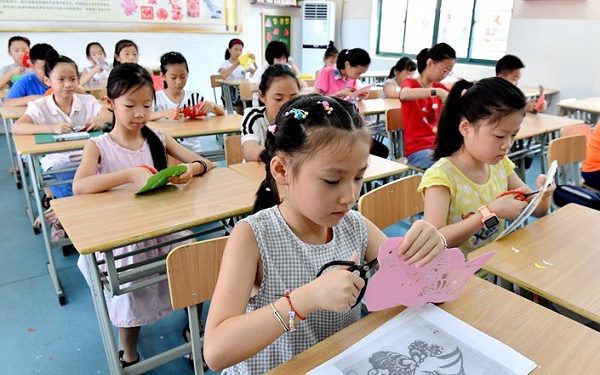In a sweeping education reforms, China is moving away from its exam-oriented system by banning written exams for six- and seven-year-olds.
The move is aimed at relieving pressure on pupils and parents in China’s hyper-competitive school system which previously required students to take exams from first grade onwards, culminating in the feared university entrance exam known as the gaokao at age 18, where a single score can determine a child’s life trajectory.
“Too frequent exams … which cause students to be overburdened and under huge exam pressure,” have been axed by the Ministry of Education.
The ministry said the pressure on pupils from a young age “harms their mental and physical health.”
The new regulations also limit exams in other years of compulsory education to once a term, with mid-term and mock examinations allowed in junior high school.
In July, China ordered all private tutoring firms to turn non-profit, and barred tutoring agencies from giving lessons in core subjects at weekends and holidays. The aim is to reduce China’s education inequality, where some middle-class parents willingly fork out 100,000 yuan ($15,400) or more per year on private tutoring to get their children into top schools.
Beijing city authorities last week announced that teachers must rotate schools every six years, to prevent a concentration of top talent at some schools. Education officials on Monday reiterated a ban on schools setting up “priority” classes for gifted students.
The Ministry of Education also banned written homework for first- and second-graders earlier this year, and limited homework for junior high students to no more than 1.5 hours per night.
Many Chinese parents still see education as a path to social mobility.

